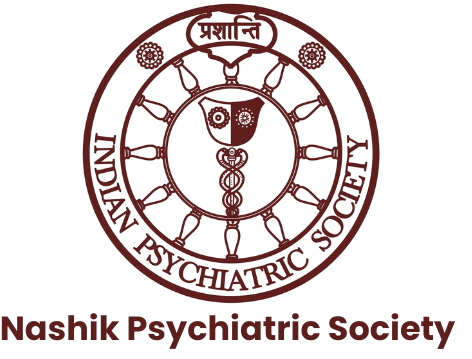Causes Of Psychiatric Illnesses
Frequently Asked Questions - Causes Of Psychiatric Illnesses
I am not a weak person, then how did I get this psychological problem?
Psychological problem is not a sign of weakness. It occurs due to changes in the brain chemicals called neurotransmitters due to various influences. They can affect any person irrespective of age, sex, education, financial status or social support.
He belonged to a rich family and his success was envied by others. Is mental illness due to curses or black magic done on the person?
The person affected by mental illness may appear physically well but the symptoms change the person’s nature making him talk & behave differently. Due to the changes in a person’s identity, black magic/ possession by evil spirits became the belief of communities. Scientific advancements have helped us understand that mental illnesses are due to an interplay of biological (genes & brain), psychological and social factors and they affect the three realms of Emotion, Thinking & Behaviour.
Last year the astrologer / priest had told us to perform a pooja which we could not; has God punished us for the sin we committed?
We can easily understand the cause of medical illnesses like tuberculosis or malaria. Since we could not understand what goes wrong in mental illnesses, lot of
superstitions & religious beliefs provided the explanation. There is no visible or measurable abnormality in mental illness unlike other medical illnesses which added to
the mystery of cause of such illnesses. In similar fashion, people look for reasons in “Pitrudosh”, and “Karma” instead of accepting the illness and working on treatment.
Many of us have a tendency to attribute our difficulties and shortcomings to the supernatural and the mystical resulting in superstition. The same happens with mental
illnesses.
Doctor, my guru says that the solution to my problems is within me, and I have to work on my soul.
In major mental illnesses, the impairment is so severe that one cannot work objectively on such advice. One has to accept medical and psychological treatment with an
open mind. You cannot exercise with a broken leg!
Doctor, my neighbor gets possessed every Navratri festival. She gets ok only after some "Tantrik" rituals.
These are likely to be symptoms of an unwell person. Some such episodes may be temporarily aborted by “Tantrik” rituals. Usually, such symptoms are due to unresolved conflicts. Hence, these are repetitive unless treated with medicines and psychotherapy.
My life is going smoothly; therefore how can I possibly suffer from any mental illness?
In some people, the biological and genetic factors predominate, leading to the occurrence of a mental illness even in the absence of identifiable stressors. Presence of a direct relation to stress is not necessary for illness to occur.
No one in my family has ever had a psychiatric illness, so how can I?
Mental illnesses develop due to multiple reasons. Hereditary factor is one of them. Genes confer a vulnerability to mental illness. The vulnerability may or may not result in illness depending on several other external factors. Thus, development of mental illness is not dependent only on family history.
I know the stress/reason that caused my illness; therefore what is the point in seeking treatment?
Each one of us would respond differently to a given stressor. A mental disorder is defined by a cluster of symptoms lasting for a long duration of time (weeks) which incapacitates our ability to work and interact socially. Treatment attempts to restore normalcy which in turn helps to fight stress. Treatment gets priority irrespective of the cause. If a bone is broken, we don’t debate on the cause in order to fix it!
He was a highly intelligent person, topper of his class; how could he get a mental illness?
Just as medical illnesses can afflict anybody, mental illnesses can affect any person irrespective of age, sex, education, financial status or social support. High intelligence does not confer protection against mental illnesses. Even a doctor who is knowledgeable about mental illnesses is not immune to them.
When there were many setbacks & stressful events few years ago, I coped bravely & gave strength to others; how am I experiencing these symptoms now when there is no cause?
It is hypothesized that stress can produce long lasting changes in the biology of the brain, so that even when the problems are long gone, the changes persist. So, one may utilize all the resources & cope during the stressful period but experience symptoms later due to the effects of cumulative stress and exhausted reserves.
He should not have taken that incident to heart, is it not his unwillingness to think positively that has led to the mental illness?
How each one of us responds to an incident depends on our mental makeup, coping skills & coping styles, past experiences, and our support system. When we are suffering from Depression there is an inability to think positively or think in a manner which would help us solve the issue. Negative thinking and thinking about the past is due to the ill state of mind as a result of neurochemical changes. One cannot simply wish it away.
I have physical problems, so how can it be due to mental illness?
The mind and the body are intricately related. Unresolved conflicts and psychological distress can often lead to physical or somatic complaints. Common examples are a headache or frequent stomach upsets for which no cause can be found despite investigations. In addition, psychological factors are often known initiate, sustain and impact the course of illnesses such as Diabetes, Hypertension, and Bronchial Asthma etc.

